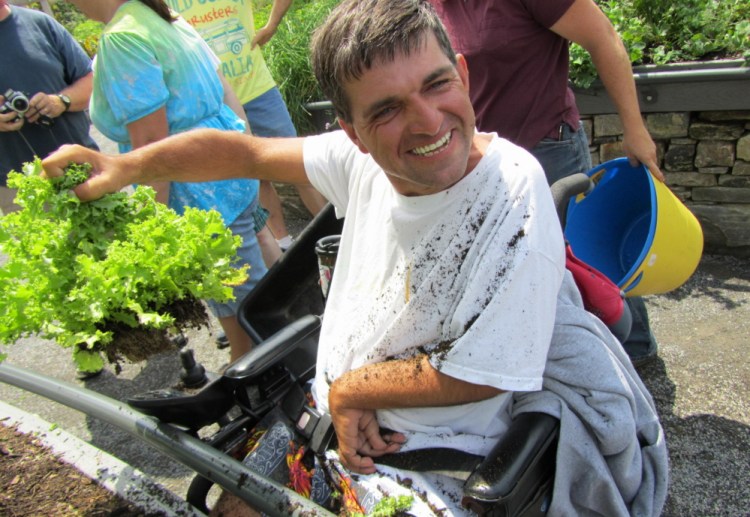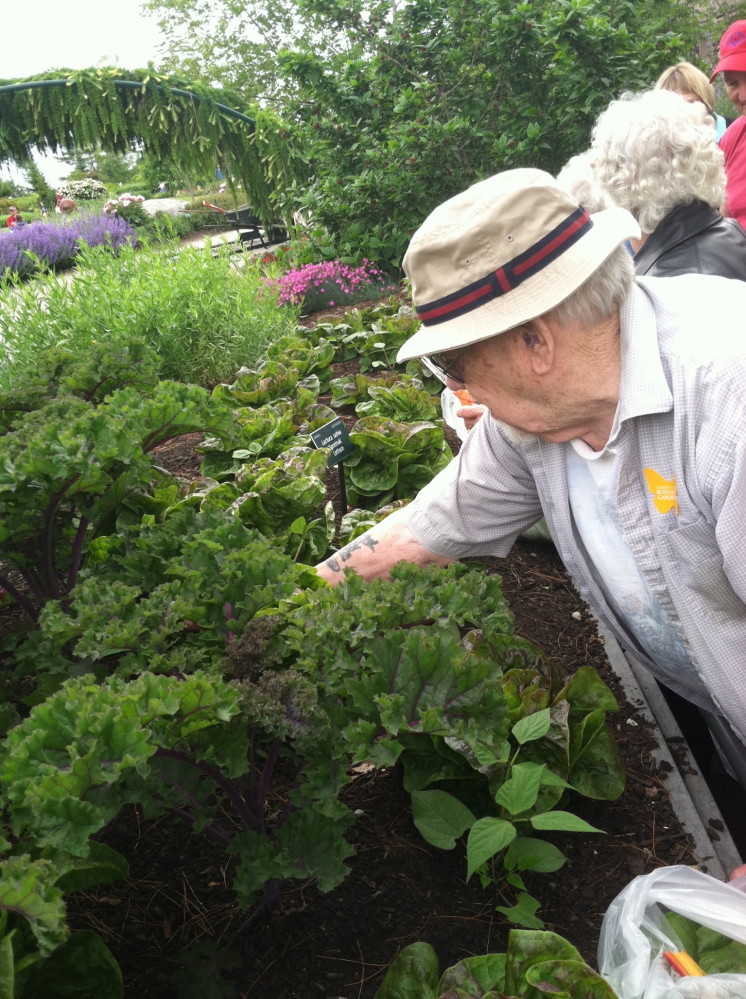Gardening is therapeutic. When you’ve come home from work after arguing with your boss or coping with an aggravating computer problem, the simple task of weeding a patch of tomatoes or pruning a pear tree can relieve stress.
The plants might give you a few problems, but they don’t talk back. And a gardener can usually see that something is getting accomplished, which is not always true in an office. Moreover, an hour or two in the garden usually leads to a better night’s sleep.
But such therapeutic horticulture is not the same as horticultural therapy, Irene Brady Barber explains; she is one of just three certified horticultural therapists in Maine, and she has offered therapy at Coastal Maine Botanical Gardens in Boothbay for the past five years.
Therapeutic horticulture gives gardeners gratifying and useful but unmeasurable benefits, she said, while in horticultural therapy, experts work with clients to reach specific treatment goals. The latter is usually done at the direction of occupational or physical therapists, and it may be paid for by a health insurance plan.
Participants in her programs – who suffer from such problems as vision impairment, dementia, developmental disabilities, the inability to walk and more – gain improved self-worth, a sense of discovery and a feeling of belonging, she said; the programs also offer mental and physical stimulation.
“In horticultural therapy, all five senses are stimulated at the same time,” Barber said. “Sight, smell, taste, touch and hearing – everything available to humans – is enhanced in the process of working with plants.”
Aptly, she holds her programs in the Lerner Garden of the Five Senses. It opened in 2009, designed in part to host just such horticultural therapy.
The garden beds are raised almost to waist height, with an extension so people in wheelchairs can get close to the plants, and there is a railing for visitors who need to support themselves. There are fragrant herbs that release aromas when touched, flowers that participants can take home at the end of classes and easy-to-harvest vegetables such as greens and cherry tomatoes. The sounds come from breezes passing through the plants.
Mollie Moore, who participates in Barber’s program for VIPs (visually impaired persons), was a driving force with her husband, Wells Moore, in creating the Garden of the Five Senses. More than 20 years ago, the Moores were charter members of the botanical garden, and when Mollie went blind as a result of meningitis in 2000, she asked if a sensory garden could be included. Yes, the Moores were told, and they could head up the project.
“Irene brings a tremendous amount of energy to the program.” Moore said. “I’m the only one (of the VIPs) who is completely blind, but (the other clients) are thrilled to bits. They feel that, ‘Yes you can still garden, no matter what your disability is.’ ”
Barber has an associate degree in horticulture and a bachelor’s degree in communications with a specialty in human behavior. Beyond those, she had to read specific case studies to get her certificate in horticultural therapy. Eventually, she hopes to earn her license, she said, and she also hopes to help create similar programs elsewhere in Maine.
Barber limits participants to seven per class; typically two caregivers and two garden volunteers help out.
Rebecca Emmons of Mobius, a nonprofit organization in Damariscotta that assists people with developmental disabilities, praised Barber’s knack for getting everyone involved, some harvesting food to take home and others using sharp tools to prune plants.
“They are doing real work,” Emmons said, “and sometimes visitors actually approach our clients as experts on the gardens, and they love that.”
Barber described a 92-year-old Mobius client who was born blind and had become mostly deaf. Barber had him do some raking, while holding onto the railing. “He’d never experienced the sensation of raking, and he said, ‘Oh my God, this is amazing,’ ” Barber recalled.
Andrea Handel of the nonprofit Elder Care Network of Lincoln County, which operates small assisted-living homes in county villages, uses a United Way grant to send a group to a six-week garden program each summer.
The tactile experience of working in the garden is especially helpful, Handel said, noting that clients who seldom speak have been known to talk about their experiences in the program.
“There is a much higher level of engagement in their lives,” Handel said.
Which is exactly Barber’s goal: “The idea is that anybody of any ability can achieve the advantages and benefits of working with plants.”
ABOUT THE WRITER
TOM ATWELL has been writing the Maine Gardener column since 2004. He gardens in Cape Elizabeth and can be contacted at 767-2297 or at tomatwell@me.com.
Send questions/comments to the editors.



